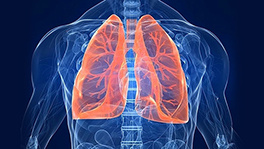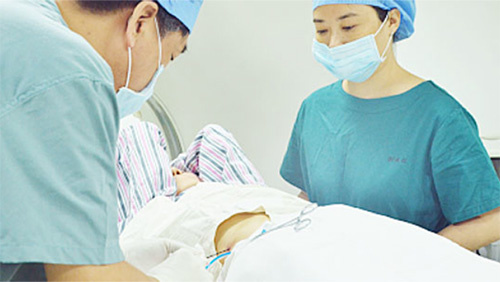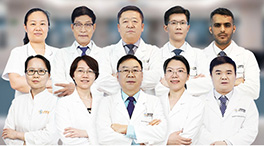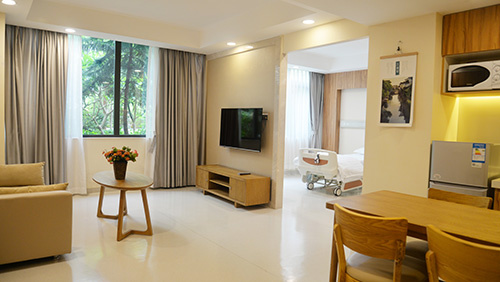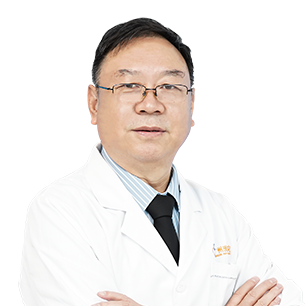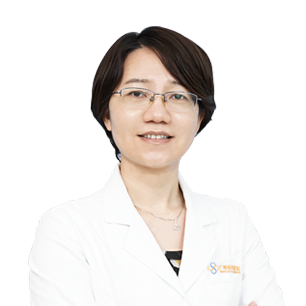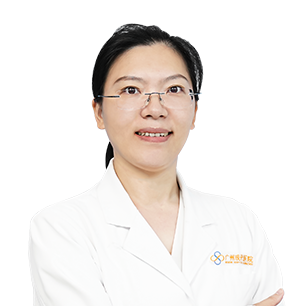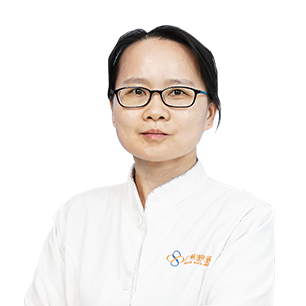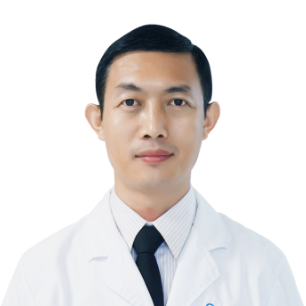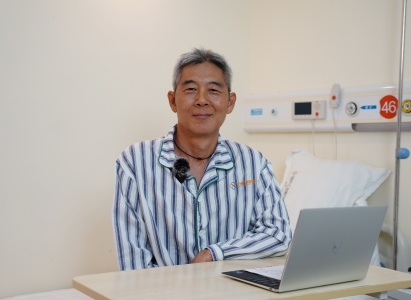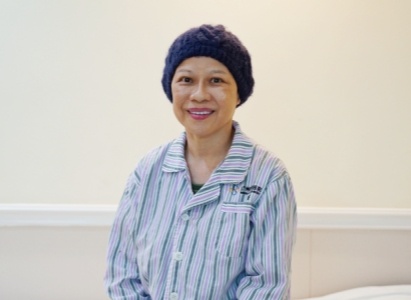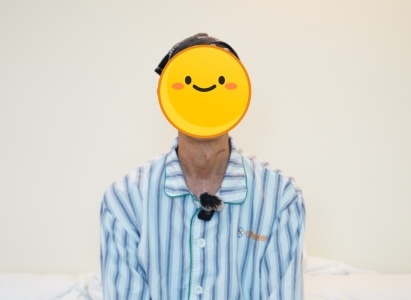 2025-08-01
2025-08-01 Share
Share
On July 19, 2025, the 4th ASEAN International Integrative Oncology Medicine Session was grandly held in Guangzhou, China. Co-hosted by authoritative institutions such as the China Anti-Cancer Association (CACA), the Chinese Academy of Integrated Medicine Development Strategies, and the World Association for Integrated Oncology (WAIO), and jointly organized by the Sun Yat-sen University Cancer Center, the Guangdong Anti-Cancer Association, the Hong Kong and Macau Anti-Cancer Association, and Modern Cancer Hospital Guangzhou.
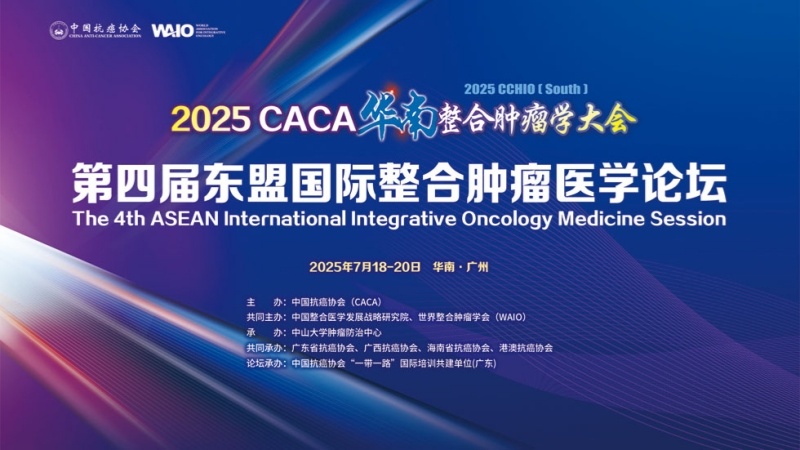
With the theme of "Cancer Prevention and Treatment, Winning by Integration", this forum brought together authoritative oncology experts, government representatives and heads of medical institutions from China, Vietnam, Malaysia, Indonesia, the Philippines, Thailand, Kazakhstan, Bangladesh and other countries. It focused on regional cancer prevention and control, frontier exploration of disciplines, guideline construction and promotion, science popularization and education, and the construction of an industry-university-research service system. It aims to promote the diversified integration and coordinated development of oncology disciplines, and is committed to building a global innovation platform for integrated oncology medicine.
Gathering of Global Experts: Opening a New Chapter in Regional Collaboration
In today’s world, integrated medicine has become a key driver in tackling cancer challenges and advancing global medical progress. The opening ceremony was attended by distinguished leaders, experts, and scholars from China and ASEAN countries, who gathered to explore new ideas and practices in regional collaboration and academic innovation.
The leaders and guests attending this session are strong, covering top representatives from multiple disciplines and fields in the region, including: Academician Fan Daiming, President of CACA and member of the Chinese Academy of Engineering. Professor Wang Ying, Secretary-General of CACA. Professor Zhang Lijun, Director of International Exchange Department, CACA. Consul General Dr. Ben Perkasa Drajat of the Indonesian Consulate in Guangzhou. Consul General Iric C. Arribas of the Philippine Consulate in Guangzhou. Consul Pham Chi Cuong of the Vietnamese Consulate in Guangzhou. Mr. Liu Weining, Chairman of the Russian-Asian Union of Industrialists and Entrepreneurs. Mr. Lim Chee Cheng, President of St. Stamford International Medical Group. Mr. Lin Xinwei, General Manager of Guangzhou Modern Cancer Hospital. Representatives from institutions such as Sun Yat-sen University Cancer Center, the Sarawak Cancer Society (Malaysia), the National Cancer Research Institute (Bangladesh), Cipto Hospital Jakarta (Indonesia), and Hanoi Oncology Hospital (Vietnam) also joined the session, collectively advocating for "Integrated Innovation to Address Global Cancer Challenges."
In his speech, Professor Zhang Fujun, head of CACA’s "Belt and Road" International Training Cooperation Unit (Guangdong), emphasized that the ASEAN forum serves as a crucial bridge in the China-ASEAN medical collaboration mechanism, promoting integrated oncology concepts at the grassroots level and across Southeast Asia. Professor Wang Ying highlighted that integrated medicine bridges traditional Chinese and Western medicine, fosters multidisciplinary collaboration, and breaks down geographical barriers, calling for shared advanced treatment models to elevate cancer care standards.
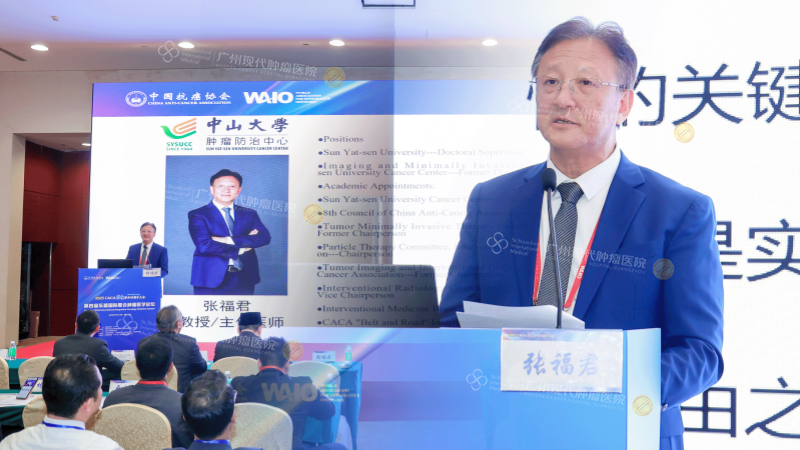
(Professor Zhang Fujun, head of the China Anti-Cancer Association's "Belt and Road" International Training Cooperation Unit (Guangdong), delivered a speech)
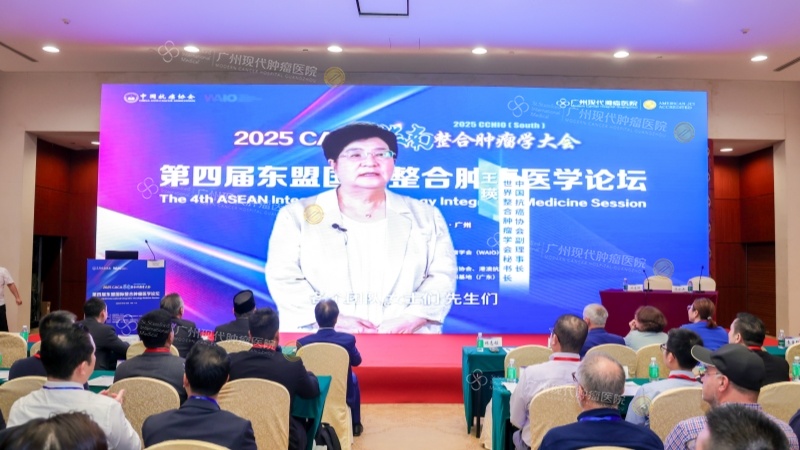
(Professor Wang Ying, Secretary General of the China Anti-Cancer Association, delivered a speech)
Consul General Dr. Ben Perkasa Drajat of Indonesia stressed that cancer prevention is a shared challenge for ASEAN nations, expressing Indonesia’s commitment to improving grassroots screening and healthcare accessibility. Mr. Liu Weining of the Russian-Asian Union noted the vast potential for Sino-Russian cooperation in medical technology and integrated treatment. Consul Pham Chi Cuong of Vietnam underscored the new opportunities for public health collaboration between China, Vietnam, and ASEAN countries through integrated medicine.
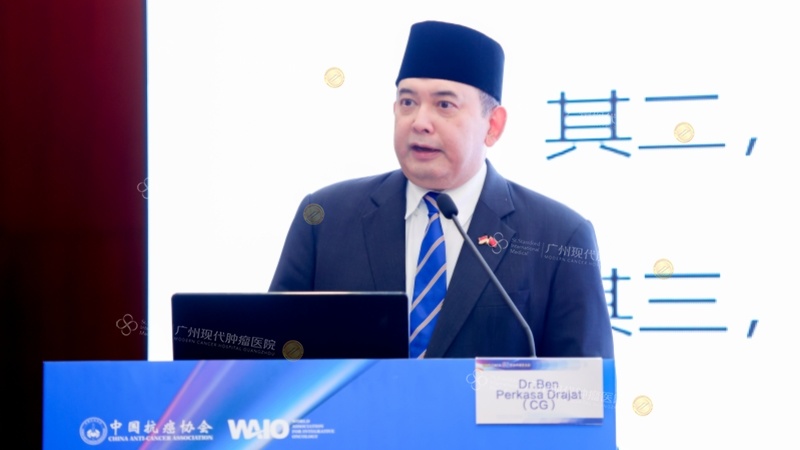
(Speech by Consul Dr. Ben Perkasa Drajat of the Indonesian Consulate General in Guangzhou)
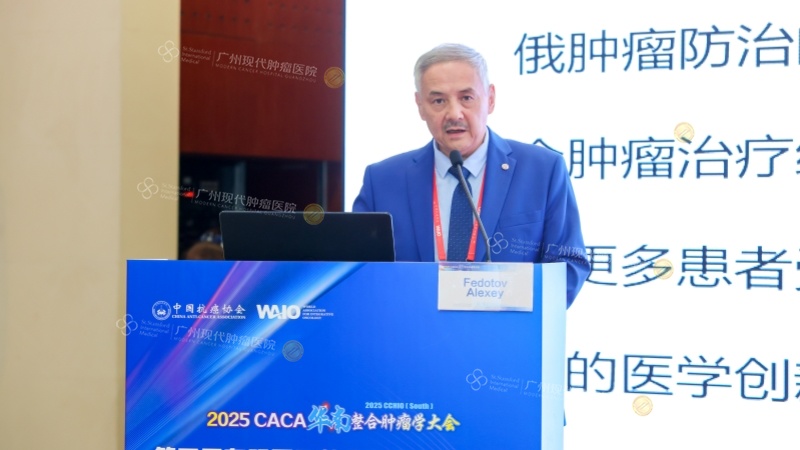
(Speech by Liu Weining, Chairman of the Russian Asian Federation of Industrial Entrepreneurs)
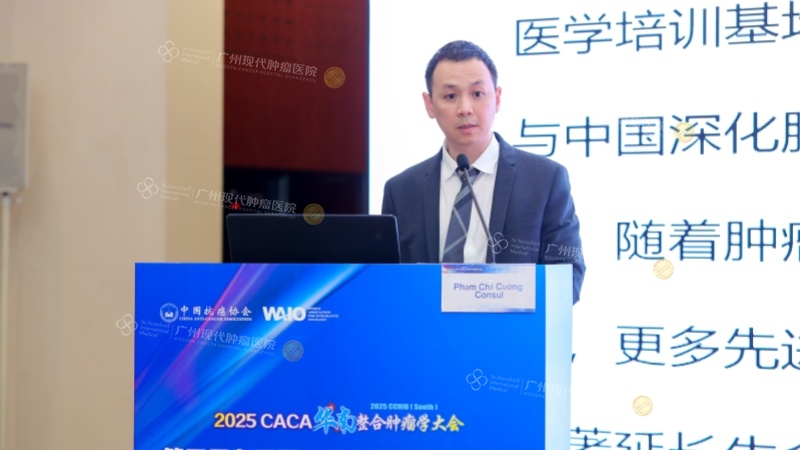
(Speech by Consul Pham Chi Qiang of the Consulate General of Vietnam in Guangzhou)
In addition, many representatives from ASEAN government health departments, hospital management agencies and international cancer prevention organizations said in their speeches that the concept of integrated medicine is highly consistent with the interconnection advocated by the "Belt and Road" initiative. Only by working together and innovating collaboratively can countries cope with the global public health challenge of cancer and effectively improve the health and well-being of residents in the region.
Precision Minimally Invasive Therapies: Expanding the Frontiers of Integrated Medicine
As one of the key highlights of this forum, Guangzhou Modern Cancer Hospital—a leading clinical practice hub for integrated medicine—featured two international oncology experts who delivered cutting-edge presentations on globally trending technologies. Their contributions vividly demonstrated the immense potential and practicality of integrated Chinese-Western medicine in cancer prevention and treatment.
Professor Huang Zuoping, a practitioner of integrated Chinese-Western oncology at Guangzhou Modern Cancer Hospital, presented on "Personalized Precision Treatment Guided by Gene Chip Data." His report showcased how molecular subtyping directs treatment pathway selection for complex cancers, integrating Chinese-Western medical principles to provide tailored precision therapies for patients.
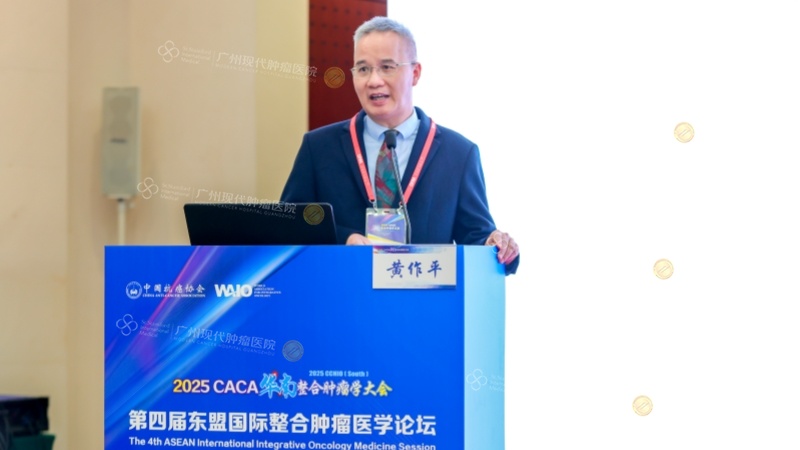
(Professor Huang Zuoping, Integrated Chinese-Western Oncology Practitioner at Modern Cancer Hospital Guangzhou)
Meanwhile, Professor He Jianyu, an international minimally invasive oncology specialist from the same hospital, delivered a speech titled "Advantages and Risks of Minimally Invasive Cancer Therapies." He provided an in-depth analysis of the clinical value of the hospital’s signature techniques—such as seed implantation and thermal ablation—in treating mid-to-late-stage cancers, along with real-world patient outcomes and strategic approaches in "reducing trauma, enhancing efficacy, and prolonging survival."
Academician Fan Daiming, President of the Chinese Anti-Cancer Association (CACA) and member of the Chinese Academy of Engineering, also addressed the gathering during this session. He highlighted CACA's remarkable achievements over the past three years: the CACA guidelines have been translated into 16 languages and disseminated across 156 countries; the association organizes 1-2 international summits monthly, with peak viewership reaching 28 million for a single session; their expert database has expanded to 850,000 professionals while establishing extensive international medical collaborations. The experiences and innovations from ASEAN nations, he emphasized, are contributing valuable insights and wisdom to the global fight against cancer.
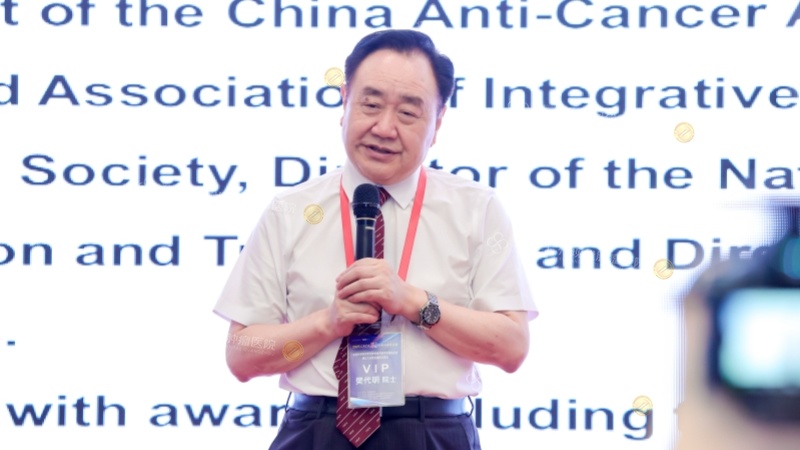
(Academician Fan Daiming, President of the Chinese Anti-Cancer Association, delivered a speech)
Concurrently, experts from the Philippines, Vietnam, Indonesia, Malaysia, Thailand, Kazakhstan, and Bangladesh engaged in deep dialogue, sharing their respective countries’ advancements in palliative care for advanced cancers, localized adaptation of minimally invasive therapies, and grassroots screening systems. This exchange truly embodied regional knowledge-sharing and collaborative model-building.
Pooling Global Wisdom to Build an Anti-Cancer Community
This medical forum was not merely an international summit dialogue, but a collaborative initiative with global vision and regional implementation capacity. Leading oncology experts from Southeast Asian countries shared their nations' valuable experiences and forward-thinking insights in advancing cancer prevention and treatment while implementing integrated medical concepts.
Professor Le Cong Dinh from Vietnam's Hanoi Oncology Hospital emphasized that while extending survival periods is crucial, equal attention must be paid to patients' quality of life and psychological rehabilitation. He advocated for standardizing multidisciplinary diagnosis and treatment while establishing parallel community support systems. Chris Cheng Yuong Kang, President of the Sarawak Cancer Society (Malaysia), called for strengthening grassroots patient support and screening capabilities through regional cooperation and community care networks, thereby benefiting more patients in remote areas. Professor Abu Khaled Muhammad Iqbal from Bangladesh's National Cancer Research Institute and Hospital proposed enhancing treatment standardization, professional training, and international data sharing to promote practical cooperation with China and ASEAN nations. Dr. Fahmi Radityamuri Sp Onk Rad from Cipto Hospital Jakarta (Indonesia) suggested leveraging regional platforms for technological complementarity and conceptual exchange to collectively elevate regional cancer prevention and treatment standards.
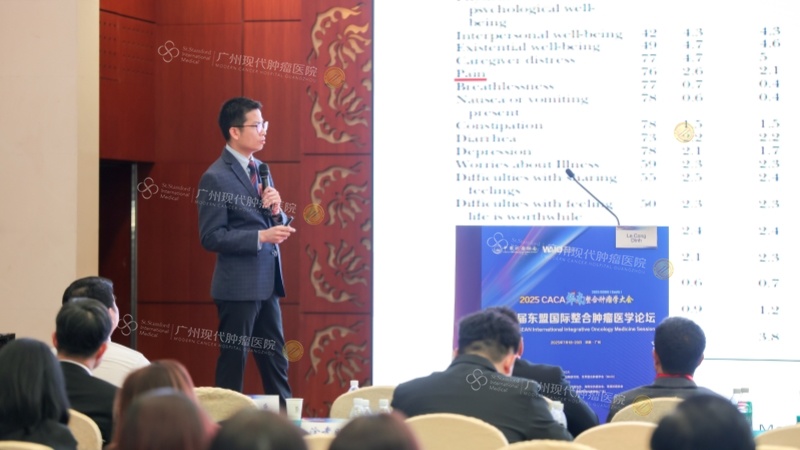
(Professor Le Cong Dinh from Hanoi Oncology Hospital, Vietnam)
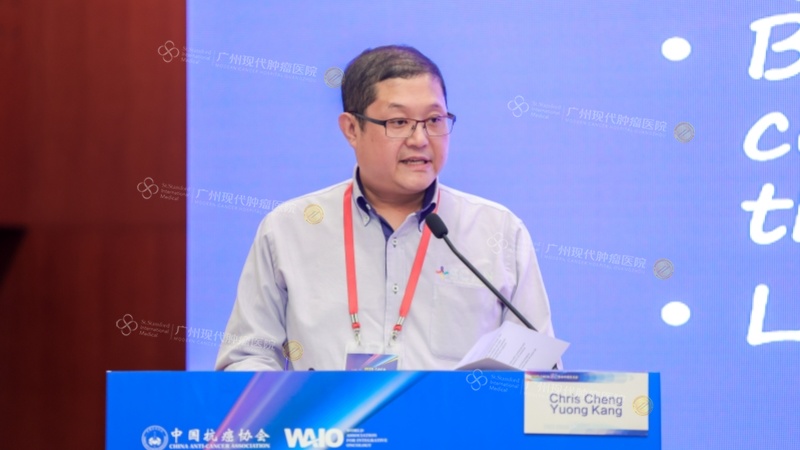
(Chris Cheng Yuong Kang, President of Sarawak Cancer Society, Malaysia)
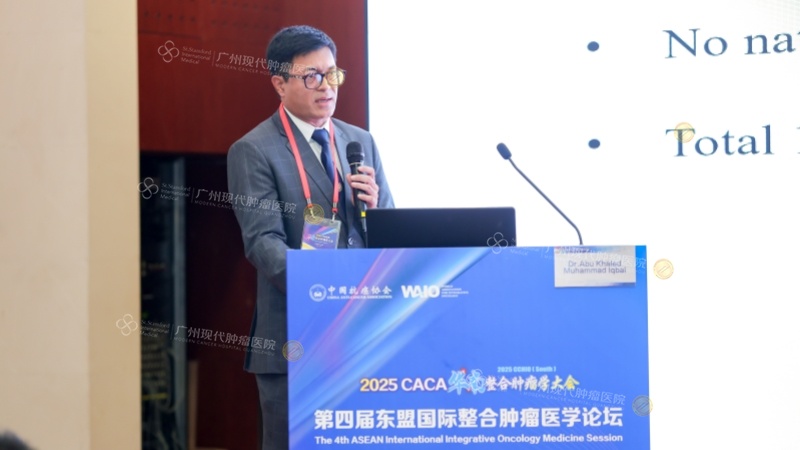
(Professor Abu Khaled Muhammad Iqbal from National Cancer Research Institute and Hospital, Bangladesh)
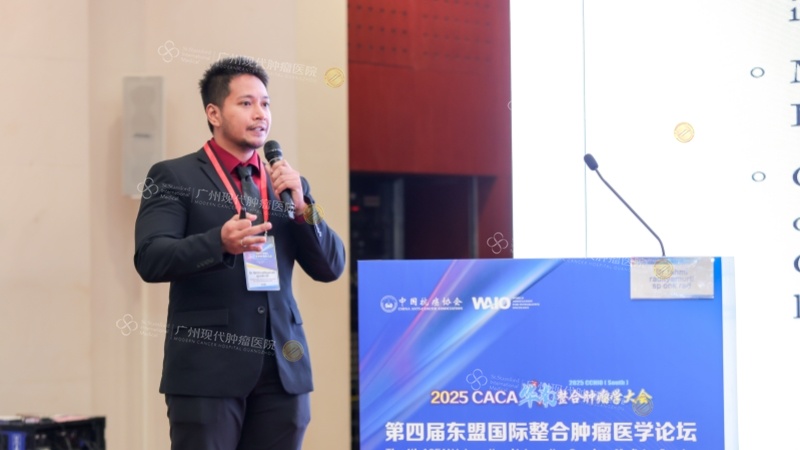
(Dr. Fahmi Radityamuri Sp Onk Rad from Cipto Hospital Jakarta, Indonesia)
Participants unanimously agreed that the forum's proposed "China-ASEAN Integrated Oncology Medicine Collaboration Network" concept has become a critical breakthrough in upgrading Southeast Asia's medical cooperation mechanisms and establishing a complete chain from "technology export → clinical application → patient transformation." This initiative will help build a global anti-cancer community featuring extensive consultation, joint contribution, and shared benefits.
Joining Hands for the Future, Sharing the Fruits of "Integrated Victory"
In post-forum interviews, Academician Fan Daiming, President of the Chinese Anti-Cancer Association (CACA), emphasized that international cooperation must strengthen practical pathways including sharing medical guidelines, facilitating physician exchanges, transferring technologies, and cultivating local talent—truly achieving resource interoperability, technical complementarity, and collective experience-building. He specifically highlighted Modern Cancer Hospital Guangzhou's pioneering integration of traditional Chinese medicine with minimally invasive technologies, citing it as an exemplary model of China-ASEAN collaboration under the Belt and Road Initiative.
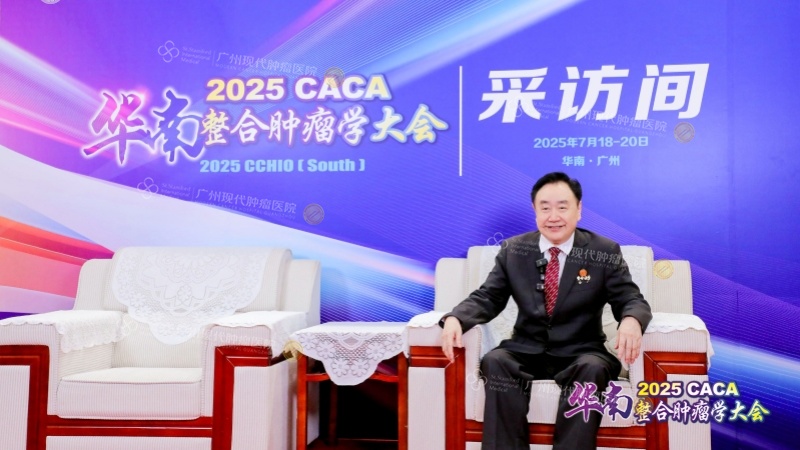
Professor Wang Ying, Secretary-General of CACA, noted that this forum served as a vital platform for advancing multidisciplinary collaboration in oncology, convening experts from China, Southeast Asia, Russia and beyond to explore integrated oncology's future. She particularly recognized Modern Cancer Hospital Guangzhou 's role as CACA's Belt and Road Integrated Oncology Training Base—having organized 220 CACA guideline seminars globally, hosted 90 international delegations, and conducted 2,800 cross-border teleconsultations over three years, establishing itself as a pivotal hub for global oncology cooperation.
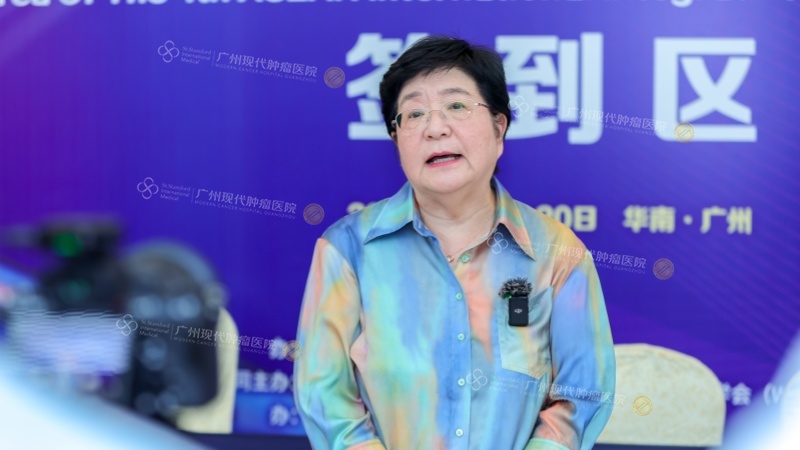
"Cooperation must transcend slogans and translate into action," urged Academician Fan, calling for China and ASEAN nations to jointly advance the clinical application of integrated medicine and institutionalize collaboration. He advocated building a mutually beneficial healthcare community to benefit more patients and sustainably contribute wisdom and strength to global health.
The forum culminated in a special "China-ASEAN Integrated Oncology Demonstration Unit" accreditation ceremony, honoring individuals and institutions excelling in innovative integrated therapies, cross-border technology dissemination, and international patient services. As an active practitioner implementing integrated medicine and multidisciplinary minimally invasive therapies across Southeast Asia, Modern Cancer Hospital Guangzhou received this distinction—a testament to its pioneering role in transnational technology transfer, international patient care, and integrative Chinese-Western medicine exploration.
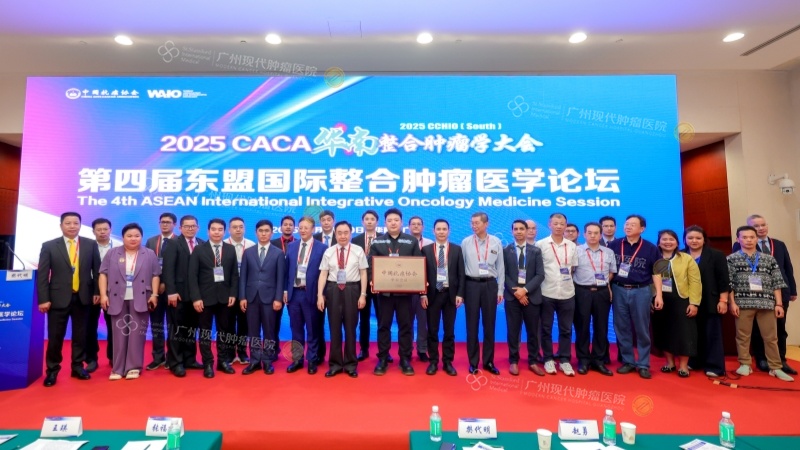
(Accreditation Ceremony)
Multiple outstanding contributors to Sino-foreign technical exchanges, integrated treatment promotion, and international patient services were also recognized, including medical experts, researchers, and hospital administrators from China and Southeast Asia. Several of the hospital's long-term Southeast Asian healthcare partners were honored for their vital contributions to regional cooperation, knowledge-sharing, and localized implementation.
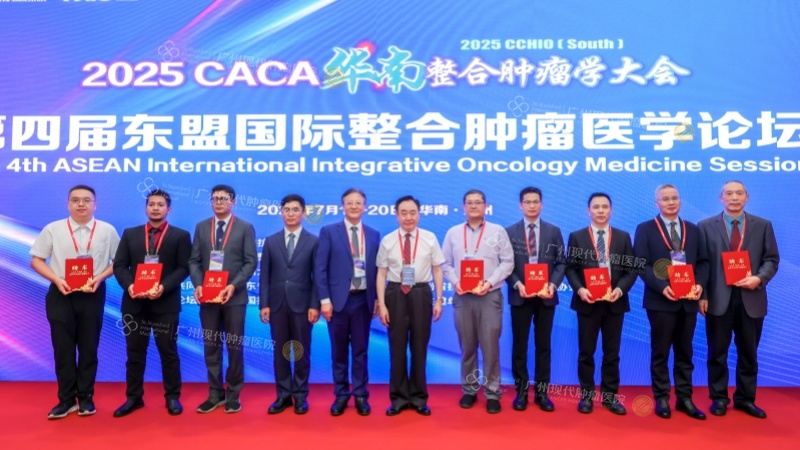
(Group Photo of Award Recipients)
本次东盟国际肿瘤整合医学论坛的成功举办,标志着中国与东盟国家在肿瘤防治领域的合作迈入深化实践的新阶段,也为区域打造高效、可持续的协作机制奠定了坚实基础。
The forum's success marks a new phase of deepened China-ASEAN cooperation in oncology, establishing a robust foundation for efficient, sustainable regional collaboration mechanisms.
作为华南地区跨国肿瘤诊疗服务的重要平台,广州现代肿瘤医院将继续发挥示范单位的引领作用,持续推进多学科会诊、微创技术、中西医整合治疗的区域落地与共享,深化与东盟国家在学术研究、患者转诊、远程诊疗和医护培训等多层面的协作。未来,医院也将不遗余力把“东方整合医学”理念推向更广阔的国际舞台,让更多患者因创新而获益、因合作而重燃希望,共同为全球抗癌事业注入中国智慧与力量,推动全球健康事业向前迈进。
As South China's premier transnational oncology service platform, Modern Cancer Hospital Guangzhou will continue leveraging its demonstration role to advance multidisciplinary tumor boards, minimally invasive technologies, and integrated Chinese-Western therapies across the region. It will further strengthen academic research, patient referrals, telemedicine, and medical training collaborations with ASEAN nations. Moving forward, the hospital remains committed to promoting "Eastern Integrated Medicine" globally—helping more patients benefit from innovation and renewed hope through cooperation, while injecting Chinese wisdom and strength into the worldwide fight against cancer to advance global health.


